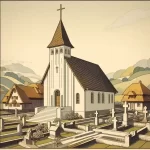O’ my endearing motherland
O’ my enchanting motherland
So euphonious
So bounteous
So near and dear a motherland
O’ my euphonic voice
The melodic voice of Asom
No-where in the world
You can ever find
even if you scour through life.
O’ my land of birth
O’ my mother Asom
Let me have one
Look at your face
My heart hasn’t been sated.
Lakshminath Bezbaroa (1864-1938) was a great Assamese personality and celebrated pioneer of modern Assamese literature. He was one of the literary stalwarts of the Jonaki Era, the age of romanticism in Assamese literature when through his essays, plays, fiction, poetry and satires, he gave a new impetus to the then stagnating Assamese literary caravan.
Father of the Assamese short-story by common consent,Bezbarua in his short stories tried to depict life with its joys and sorrows.These stories reflect his strong social awareness.He experimented with the new form trying to blend it with the native technique of telling a tale and this perplexed the critic.But the best of his stories are among the best in world literature.By collecting and publishing the folk tales of Assam he did to his people what the Grim brothers did to the Germans.
Bezbarua was more than a writer,he was an institution by himself.He bullied his people, his readers, coaxed and cajoled them, laughed merrily with them sometimes to the point of being flippant and in short ,used all the tricks of his boyhood as a serious and comic writer to rouse them from their slumber,to make them face the reality of the changing times with wide open eyes.He taught his people to be justly proud of their rich heritage and to feel shame for their age old vices and new ones creeping in with the coming of the British.All this he did with his books and his mouthpiece the ‘Banhi’published from Calcutta.A life long exile in West Bengal and Orissa,working in the jungles as a timber merchant,he was a cosmopolitan.He married into the Thakur family of Calcutta.These connections have enriched his short stories where we find a large gallery of memorable characters drawn from those parts of British India.His ‘O mor aponar Desh ‘ has attained the status of an anthem for Assamese people and has not lost its electrifying influence .He died in Dibrugarh while on a visit to his motherland.








Leave a Reply